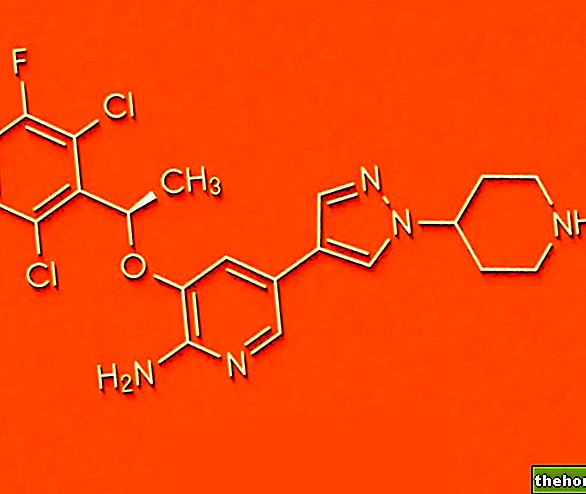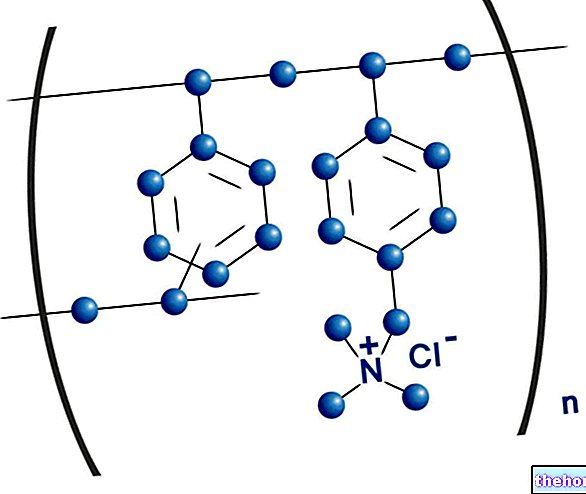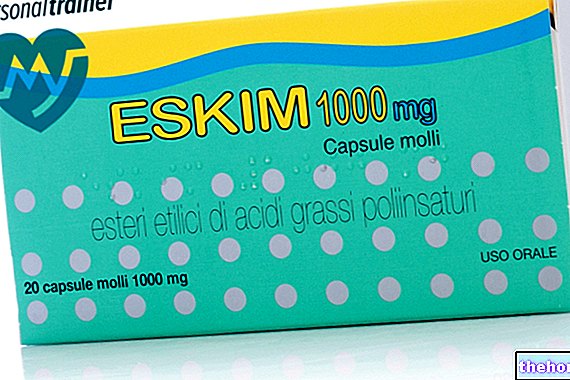LINCOCIN ® is a drug based on Lincomycin hydrochloride
THERAPEUTIC GROUP: Antibacterials - Antibiotics for systemic use

Indications LINCOCIN ® Lincomycin
LINCOCIN ® is a drug used in the treatment of infections caused by anaerobic flora sensitive to lincosamides such as staphylococci, pneumococci and streptococci.
Given the potential side effects, these drugs should be used as a second choice in case of ineffective activity or resistance to penicillins.
Mechanism of action LINCOCIN ® Lincomycin
Lincomycin, active ingredient of LINCOCIN ®, is a natural antibiotic extracted from Streptomyces lincolnensis belonging to the class of lincosamides and with a generally bacteriostatic activity.
The mechanism of action superimposable to that of macrolides, therefore characterized by the inhibition of protein synthesis mediated by the link with the 50S ribosomal subunit and by the block of the elongation of the nascent peptide chain, could explain a cross reactivity with macrolides and therefore also the same sensitivity to the resistance mechanisms put in place by the various microorganisms.
Administered both parenterally and orally, Lincomycin has a good bioavailability, distributing itself homogeneously in all tissues except the nervous one, given the inability to cross the blood-brain barrier to intact meninges, being metabolized into active metabolites.
Once its activity is over, this active ingredient is mainly excreted via the biliary route, while only 14% is excreted in the urine.
Studies carried out and clinical efficacy
1. LINCOMYCIN IN THE TREATMENT OF ACNE VOLGARE
Indian J Dermatol Venereol Leprol. 2003 Jul-Aug; 69: 271-3.
Topical lincomycin gel in acne vulgaris: a multicentric placebo controlled study.
Sharma AD, Gupte PD, Sundaram M, Janaki VR, Rege VL, Bilimoria FE, Arora J.
Study that demonstrates how the topical use of 2% Lincomycin-based gel can be effective and well tolerated in the treatment of acne vulgaris, even of second and third degree.
2. LINCOMYCIN IN DENTAL PRACTICE
Ann Acad Med Stetin. 2009; 55: 59-64.
Lincomycin applied to the alveolus on TCP carrier and its effect on wound healing after surgical extraction of a third molar.
Wiśniewska I, Slósarczyk A, Myśliwiec L, Sporniak-Tutak K.
Work that demonstrates how the use of Lincomycin can be effective in preventing alveolar periostitis by reducing the complications of dental surgery and thus improving prognosis and clinical course.
3.LINCOMYCIN AND IMMUNE SYSTEM
Xi Bao Yu Fen Zi Mian Yi Xue Za Zhi. 2011 Jul; 27: 763-6.
A preliminary study on the effect of lincomycin on the immune function of dendritic cell line DC2.4.
Zhang H, Jiao ZJ, Mao CM, Jiang Q, Tong J, Wang SJ, Xu HX.
Interesting experimental study that demonstrates how the administration of Lincomycin can partially inhibit the immunoregulatory activity of dendritic cells, thus enhancing the host's defensive capabilities.
Method of use and dosage
LINCOCIN ®
Capsules of 544.81 mg of Lincomycin hydrochloride equal to 500 mg of Lincomycin Base.
Sterile solution for injection of 300 mg of Lincomycin base per ml of solution.
The dosage schedule useful in the treatment of infections caused by germs sensitive to Lincomycin varies according to the choice of the route of administration.
Generally for the oral one it is preferred the assumption of 500 mg of Lincomycin every 6-8 hours depending on the clinical severity, taking care to avoid the ingestion of food and drinks with the exception of water in the time interval between 2 hours before and after.
For parenteral use, on the other hand, the administration of 600 mg of Lincomycin every 12 hours is preferred.
Variations in standard dosages should be envisaged for elderly patients and children.
Warnings LINCOCIN ® Lincomycin
As mentioned in the indications, the use of Lincomycin should be considered as a second choice therapeutic option, if the Penicillins are not effective or can be administered due to potential contraindications.
This limitation is linked to some side effects, especially of the gastro-enteric type, observed following the use of Lincomycin, especially in patients with a previous history of intestinal disorders, responsible for severe diarrhea, sometimes with even serious complications such as peritonitis, shock and megacolon toxic.
In these cases, the endoscopic examination and before and the subsequent microbiological examination have generally revealed the presence of Clostridium Difficile pseudomembranous colitis, probably due to the massive alteration of the intestinal microflora.
For this reason and given the metabolism of the drug, extreme caution is advised in the administration of LINCOCIN ® in debilitated patients, suffering from gastro-enteric, hepatic, renal diseases and in patients with a previous history of drug hypersensitivity.
PREGNANCY AND BREASTFEEDING
The absence of clinical trials able to fully characterize the safety profile of Lincomycin on the accidentally exposed unborn child and the ability of the same to concentrate in pharmacologically active doses in breast milk suggests avoiding the use of this drug during pregnancy and in the subsequent period of breastfeeding.
Interactions
Although most of the data currently in the literature refer to experimental studies, it would in any case be advisable to avoid the simultaneous intake of Lincomycin and:
- Macrolides for the enhancement of side effects;
- Erythromycin for the natural antagonism observed;
- Drugs with neuromuscular blocking activity for the enhancement of inhibitory activity.
Contraindications LINCOCIN ® Lincomycin
LINCOCIN ® is contraindicated in patients hypersensitive to the active substance or to one of its excipients.
Undesirable Effects - Side Effects
The use of LINCOCIN ® especially when prolonged over time could be responsible for nausea, vomiting, persistent diarrhea and pseudomembranous colitis in the most severe cases, neutropenia and agranulocytosis, erythema and dermatological reactions of hypersensitivity, hypertransaminasemia and in the most serious cases shock.
Occasionally, erythema and pain at the injection site have also been reported.
Note
LINCOCIN ® is a drug subject to mandatory medical prescription.
The information on LINCOCIN ® Lincomycin published on this page may be out of date or incomplete. For a correct use of this information, see the Disclaimer and useful information page.























-nelle-carni-di-maiale.jpg)




